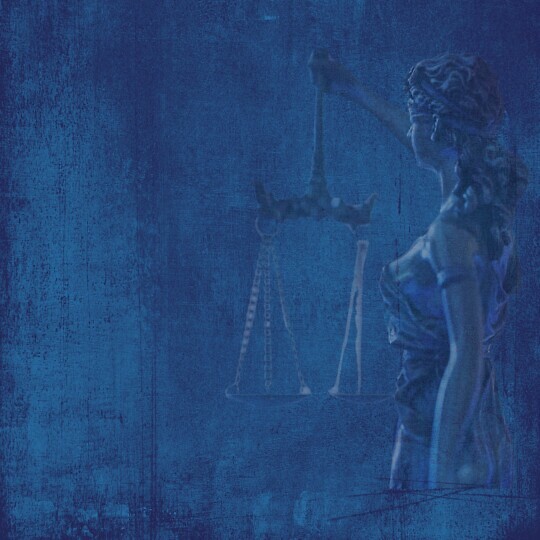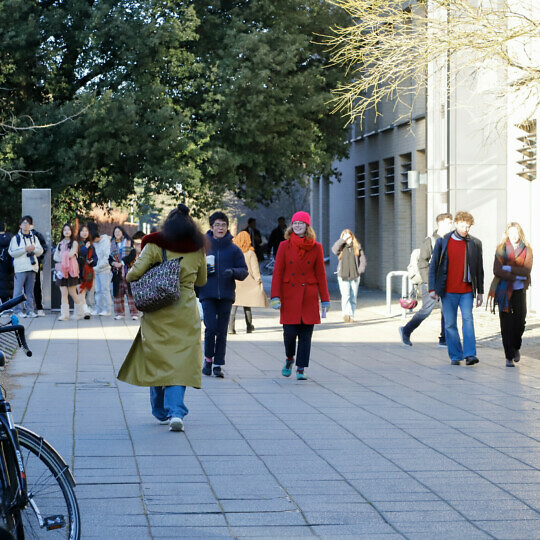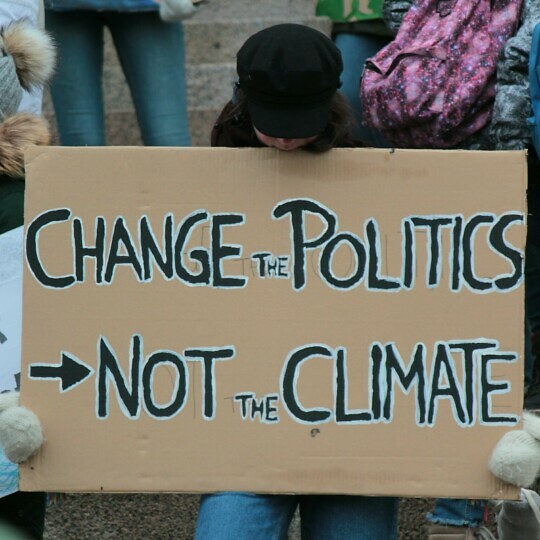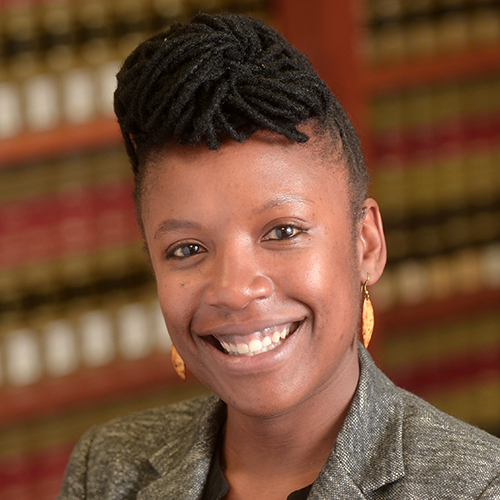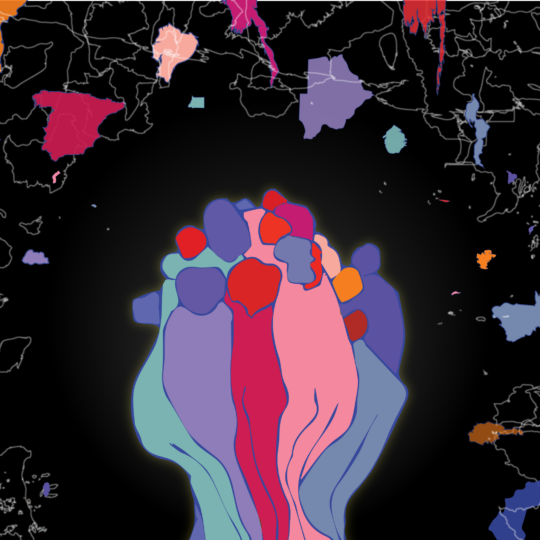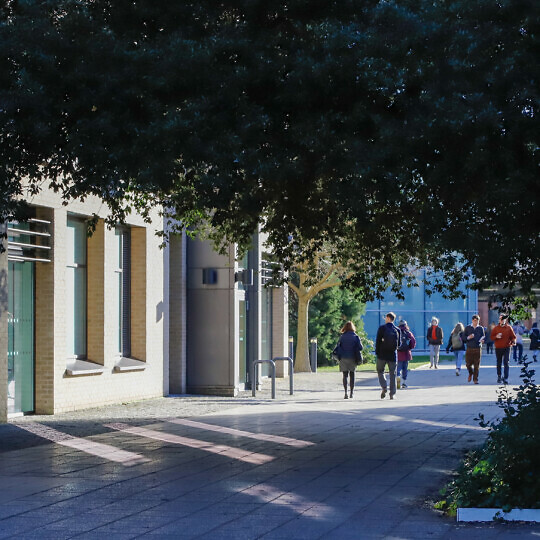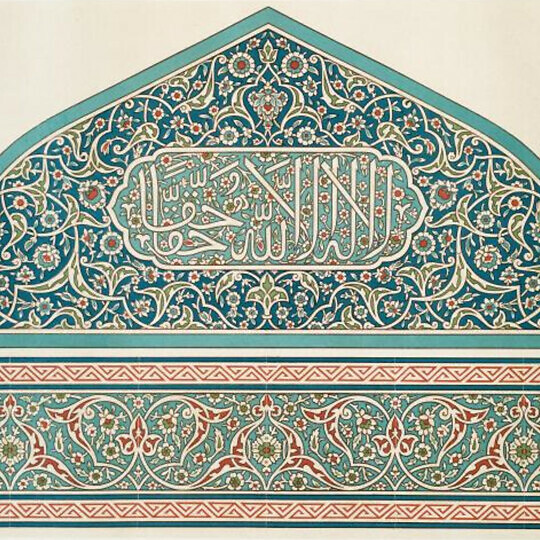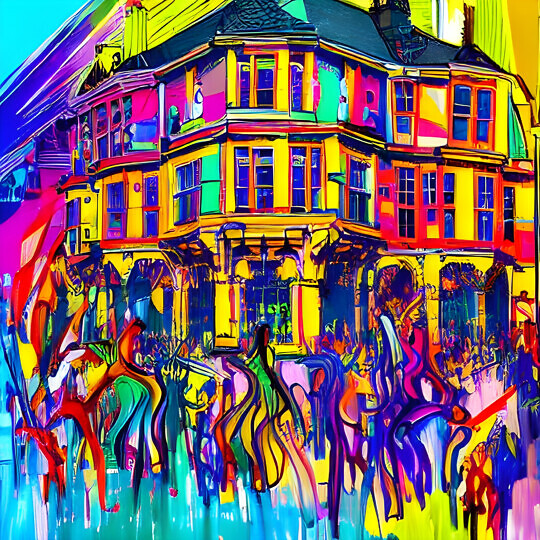| 26 Mar 2019 - 27 Mar 2019 | All day | Room SG1/2, CRASSH, Alison Richard Building, 7 West Road, Cambridge, CB3 9DT | |
- Description
- Programme
- Abstracts
Description
Registration for this conference has now closed.
Papers will be circulated in advance of the conference. Attendee numbers will be limited in order to facilitate discussion of the pre-circulated material and, unfortunately, it may not be possible for everyone who is interested to attend.
Convenors
Mariëtta van der Tol (University of Cambridge)
Carys Brown (University of Manchester)
John Adenitire (University of Birmingham)
Emily S. Kempson (University of Cambridge)
Summary
In contemporary politics, the concepts of 'toleration' and 'religious freedom' go hand-in-hand. However, this has not always been the case. The persistent assumption that early modern toleration inevitably led to religious freedom has now been substantially challenged. As recent research has recognised, early modern toleration was often begrudging and limited; principled religious freedom was only rarely on the agenda. It is now widely recognised in historical scholarship that the emergence of the idea of religious freedom was far from a straightforward narrative of the eventual triumph of religious freedom over state intolerance and ingrained prejudice. In the light of contemporary challenges to the meaning and scope of religious freedom, this complex relationship between toleration and religious freedom is a pertinent as ever.
This conference will facilitate interdisciplinary engagement with historical narratives of toleration and religious freedom. Convening scholars from the disciplines of politics, history, theology and religious studies, philosophy, and law, it will allow for a rich exploration of the relevance of early modern histories of toleration to contemporary debates on religious diversity and the accommodation of minority thought and behaviour. Over two days we will discuss conceptual approaches to toleration and religious freedom as well as exploration of specific case studies from early modern and contemporary contexts.
Key questions will include: How have uses of religious space historically enabled and constrained religious freedom? How is this now affected by the shifting boundaries between public and private in a digital age? What roles do religious rituals, rites of passage, and the religious education of children play in society, and how can they be regulated? What constitutes conscientious objection, and who decides? Such themes demand an interdisciplinary approach; in creating a setting for their exploration it is hoped that this conference will prove an exciting forum for those concerned with pressing issues of tolerance and intolerance, past and present.
Keynote speaker: Professor Ben Kaplan (University College London)
Sponsors


Supported by the Centre for Research in the Arts, Social Sciences and Humanities (CRASSH), the University of Cambridge's Centre for Public Law and School of the Humanities and Social Sciences, and the University of York's Morrell Centre for Toleration.
Administrative assistance: events@crassh.cam.ac.uk.
Programme
| Day 1 – Tuesday 26 March | |
| 9.00 - 9.15 | Registration |
| 9.15 - 9.45 | Opening and Introduction |
| 9.45 - 11.00 | Keynote Chair: Carys Brown (University of Manchester)
Benjamin Kaplan (University College London) 'The Many Meanings of Freedom of Conscience in Early Modern Europe' |
| 11.00 - 11.30 | Break |
| 11.30 - 13.00 | Panel 1: Perspectives on Toleration Chair: Teresa Bejan (University of Oxford)
Michael Moreland (Villanova University) ‘Power Ecclesiastical and Political: Hobbes and Bellarmine on Religion in the State’
Shannon C. Stimson (Georgetown University) ‘Heterodoxy and Political Economy: Religious Toleration and Political Arithmetic in the Writings of Sir William Petty, 1652-1687’
Alexander Tebble (University of York) ‘Where Liberalism Begins and Toleration Ends: A Comparison of Locke on Atheism and Rawls on the “Unreasonable”’ |
| 13.00 - 14.00 | Lunch |
| 14.00 - 15.15 | Panel 2: Toleration and Loyalties Chair: Eva Brems (University of Ghent)
Bram De Ridder (Catholic University of Leuven) and Christophe Schellekens (Leibniz Institute of European History, Mainz) ‘”Religious Toleration and Peace” Project (RETOPEA)'
Hans Leaman (Sattler College, Boston, Mass) ‘Managing Civic and Religious Allegiances in the Rites of Citizenship: Reflections on a Handshake’ |
| 15.15 - 15.45 | Break |
| 15.45 - 17.15 | Panel 3: Toleration and Conscience Chair: John Adenitire (University of Birmingham)
John Coffey (University of Leicester) ‘”Liberty of Conscience is a Natural Right”: The Rights of Conscience in Anglo-American Protestant Thought, 1640-1790’
Tobias Kelly (University of Edinburgh) ‘Freedom of Conscience and the Limits of Toleration in Second World War Britain’
Patricia Ballenas (Queens University, Kingston, Ontario) ‘The Religious-Conscientious Exemption as a Guarantee of Freedom of Conscience and Freedom of Religion’ |
| Day 2 – Wednesday 27 March | |
| 9.00 - 10.15 | Panel 4: Islam and Toleration Chair: Emily S. Kempson (University of Cambridge)
Adam Duker (American University in Cairo) ‘Does Islam Need a Reformation? Reformation Studies under the Gaze of President Sisi and a Saudi Billionaire’
Mirela Krešić (University of Zagreb) ‘Different but Same: Croatian Experience of Islamic Community Inclusion into Society’ |
| 10.15 - 10.45 | Break |
| 10.45 - 12.15 | Panel 5: Local Practices of Toleration Chair: John Coffey (University of Leicester)
Augur Pearce (late of University of Cardiff) ‘Mutual Toleration in the English Churches: Legal Devices to Enforce Perceived Orthodoxy in Denominational Space’
Tobias Müller (University of Cambridge) ‘Discontents of Toleration: Local Religious Freedom, Depoliticisation and the Nation State’
Fiona McCall (University of Portsmouth / University of Oxford) ‘Quarrelling with Mince Pies: Local Tolerance and Intolerance during the English Interregnum’ |
| 12.15 - 13.15 | Lunch |
| 13.15 - 14.30 | Panel 6: ‘Being Right’ in Search of Power Chair: Mariëtta van der Tol (Univeristy of Cambridge)
Kaisa Iso-Herttua (University of Helsinki) ‘Struggle for Political Power and Religious Freedom’
Sarah Scholl (University of Geneva) ‘From Tolerance to Religious Freedom to Tolerance again? A Historical Reflection from the Swiss case (19th and 20th Centuries)’ |
| 14.30 - 15.00 | Break |
| 15.00 - 16.30 | Interfaith Panel Chair: Emily S. Kempson (University of Cambridge)
|
| 16.30 - 16.45 | Closing and Farewell |
Abstracts
Patricia Ballenas (Queens University, Kingston, Ontario)
‘The Religious-Conscientious Exemption as a Guarantee of Freedom of Conscience and Freedom of Religion’
The religious-conscientious exemption is a form of release from complying with a legal obligation due to the conflict between the obligation and a person’s deeply-held religious and moral beliefs. It should be exercised in connection with freedom of religion and freedom of conscience. Precisely, both freedoms might require the state to guarantee them by legal action -to grant the exemption. There is no international human rights law definition of the religious-conscientious exemption. Even in the case of objecting to military service, United Nations instruments do not make direct reference to a right to religious-conscientious exemption. This situation is aggravated by the subjective and hands-off approach in the assessment of religious-conscience claims. Consequently, religion has turned into whatever the person asserts to sincerely belief. It is about a subjective and individual conception of freedom of religion that has merged with freedom of conscience, including atheism and agnosticism. I argue for an ontological definition of religion, as well as, a distinctive test to assess religious-conscientious exemption claims. If the exemption is precisely an exception to the principle of obeying the Law, then, there should be a narrower conception of both freedoms and a more objective sincerity test, with a higher standard than just relying in the individual. Thus, some correspondence between the claim and the objector's action might be required.
John Coffey (University of Leicester)
‘”Liberty of Conscience is a Natural Right”: The Rights of Conscience in Anglo-American Protestant Thought, 1640-1790’
‘It is now no more that toleration is spoken of, as if it was by the indulgence of one class of people, that another enjoyed the exercise of their inherent natural rights’. So wrote George Washington in a 1790 letter to the Hebrew Congregation of Newport, Rhode Island. Toleration had been superseded by religious liberty – the government of the United States now recognised freedom of religion as an inalienable natural right. When and how did this idea emerge out of early modern tolerationist thought? Intellectual historians like Brian Tierney and Rainer Forst have begun to answer this question, but this paper will offer a more developed account of the coinage, dissemination and eventual ascendancy of this new language among Protestants on both sides of the Atlantic. Building on Blair Worden’s study of ‘civil and religious liberty’, it will argue that the English Revolution was the critical moment when this linguistic and conceptual innovation first emerged in English. Pioneered by the Levellers, taken up by Oliver Cromwell, and exploited by the Quakers (including William Penn), the claim that ‘liberty of conscience is a natural right’ was also endorsed by certain Anglicans including Henry More, Gilbert Burnet and John Locke. Over the course of the eighteenth century, ‘the rights of conscience’ would become a commonplace, ensuring the displacement of ‘religious toleration’ by ‘religious liberty’.
Bram De Ridder (Catholic University of Leuven) and Christophe Schellekens (Leibniz Institute of European History, Mainz)
‘”Religious Toleration and Peace” Project (RETOPEA)'
As part of the RETOPEA Horizon 2020 project, our proposal aims to connect a comparative history of Christian-European and Islamic practices of tolerance with contemporary educational discussions. We start from the observation that whig histories of a European evolution towards more tolerance and religious freedom have been convincingly criticized. In recent years they have been replaced with a more nuanced conception of the history of tolerance, which points to pragmatism as a driving force behind settlements of religious coexistence, and to intolerance as a default situation. In order to clarify this connection between intolerance and pragmatism, we will compare a set of Early Modern European cases of settlements of religious coexistence (e.g. the Peace of Saint-Germaine of 1562, the Religionsvrede in the Low Countries of 1578 and the Edict of Nantes in 1598) with several Ottoman and Mughal practices of toleration. This comparison serves to understand if the experience of tolerance rooted in pragmatism rather than abstract ideals was distinctly Christian-European, or rather part of a wider tendency. Finally, and based on this comparison, we will bring up the question how these observations about pragmatism may serve as relevant and thought-provoking examples for policy makers, teachers and schoolchildren – the core audiences of the RETOPEA Project.
Adam Duker (American University in Cairo)
‘Does Islam Need a Reformation? Reformation Studies under the Gaze of President Sisi and a Saudi Billionaire’
This presentation will draw from my experiences as the Islamic Middle East’s only early modern European and Reformation historian. In my capacity teaching the Reformation at Egypt’s most prestigious university – mostly to students from Muslim backgrounds – I have been able (albeit with only limited success) to harness historiographical debates on ‘toleration’ in early modern Europe to advance contemporary religious dialogue and understanding in Egypt and Saudi Arabia. This has taken the form of publicly criticizing the respective approaches of President Abdel Fattah el-Sisi and The Grand Imam of al-Azhar, Ahmed el-Tayeb. I have been able to draw on early modern models to both advocate for the political and religious rights of Jews, Christians, atheists, women, and homosexuals, while also warning against the problems Europe experienced during the crucible of early modernity when these religious and social questions received the political and military answers that they did.
As faculty lines in pre-modern European and Reformation History begin to give way to African, Middle Eastern, Latin American, and Asian positions, I contend that late medieval and early modern European historians need to find new ways to explain our importance and new audiences to whom we can market our research. Sadly, we can no longer assume that History Departments will continue to recognize the Renaissance and Reformations as pivotal turning points in the tapestry of world history. Many programs now believe that their students are capable of understanding the modern world without a rudimentary knowledge of late medieval and early modern religious history. While Reformation scholars reflexively know this to claim to be false, we need to learn to reach out to new audiences and find new ways to promote the importance of our field. Learning from my experience will help not only those who might go on to teach in the Islamic world, but also those who teach in Europe and North America — where Reformation scholars are increasingly likely to have Muslim students interested in the History of Christianity in their classes and seminars.
I will argue that the frequently restated thesis that what the Muslim world needs more than anything else is a Reformation is false and misguided. Instead, I will argue that if we understand the Reformation as a period of political instability, social divisions and cultural transformations, religious war, ambitious princes hoarding power, overseas expansions of the faith, and centrifugal epistemological uncertainty masquerading as absolute surety, we can then see things in a very different light. Instead of calling for an Islamic Reformation today, Westerners would do better to realize that the Muslim world is currently engaged in a process of Reformation. While this process shares many parallels with the Christian Reformation of the sixteenth century, it has its own vocabulary and its own concerns and dynamics largely divorced from the Christian context. Nevertheless, framing the current power, religious, and epistemological dynamics in the Middle East as a time of ‘Reformation’ to Muslim audiences is an excellent and effective way to communicate the importance of understanding previous articulations of religious change in a comparative and cross-confessional manner. I will argue that the question isn’t ‘does Islam need a Reformation’, but rather ‘what model of Reformation are we currently witnessing, and is it the best one for peace and toleration in the twenty-first century?’
Kaisa Iso-Herttua (University of Helsinki)
‘Struggle for Political Power and Religious Freedom’
It is not a new phenomenon that the limits of religious toleration have political connections. In seventeenth century England, in order to protect the freedom of conviction for Protestant dissidents John Locke, the father of liberalism, argued for the separation of the state and church. Religious toleration was politically needed while there were constant fights over crown and the change of crown meant, moreover, the change of religion for the people. However, Locke’s concept of religious toleration was selective: Catholics, for example, were not included. That was because Catholics were not considered as part of a religion but a political power led by the Pope and Vatican, and therefore considered as a risk to the state’s safety and security.
In this paper, I look into the complex relationship of minorities’ religious freedom and political power in a light of argumentation of the Early Enlightenment England and contemporary Europe. In Contemporary European politics, safety and security are, onward, been used as one argument to limit religious freedom. Pamela Slotte, among others, has argued that European Human Rights Court rulings indicate that court considers Islam to be a religion that has more political and societal ambitions than, for example, Protestants or Italian Catholics in Europe.
Tobias Kelly (University of Edinburgh)
‘Freedom of Conscience and the Limits of Toleration in Second World War Britain’
What constitutes conscientious objection, and who decides? What types of people, beliefs and actions are protected under the principle of freedom of conscience? Conscientious objectors to military service in Second War Britain represent a particularly acute example of freedom of conscience. At a time of national emergency, over sixty thousand people were exempted from fighting on the grounds of sincere conscience. The formal right to conscientious objection was celebrated by many British politicians as an example of what they saw as a particular British history of toleration. Formally, the law did not define the form that conscience had to take, and conscience could therefore be seen as a secular principle that went wider than particular forms of religious belief. However, in practice, the tribunals that decided on exemption operated with a very narrow and particular understanding of conscience. This paper explores the types of conviction, person and behaviour that were recognised as legitimate and persuasive forms of conscience in mid-twentieth century Britain. In doing so, it also examines what this particular example can tell us about the broader relationship between conscience, toleration and religion.
Mirela Krešić (University of Zagreb)
‘Different but Same: Croatian Experience of Islamic Community Inclusion into Society’
In 2002 the Government of the Republic of Croatia and the Islamic Community of Croatia signed the Treaty on the Points of Common Interest. The Treaty stipulates the position of the Islamic religious community considering the historical and the present roles of the Islamic Community. Although Croatian Muslims (most of them are of Bosnian and Herzegovinian origin) make up only 1.5% of the country`s population, they are considered as an example of the most successful integration of the Muslim minority in Europe. Reasons for that can be traced back to the late nineteenth and beginning of the twentieth century.
According to the Croatian-Hungarian Compromise of 1868 which regulated the position of Croatia within the Austro-Hungarian Monarchy, Croatia had the autonomy in religious matters. Accordingly, the Croatian Parliament passed acts regulating the position of various religious communities including Islam (1916). As a result, Muslims were granted the right of public worship, as well as independence in the religious, educational and association matters. Legal protection was granted to religious officials, as well as the Islamic teachings, acts and customs, unless contrary to the legal regulations in force.
Recognition of Islam meant that Muslims were entitled to the same rights as Croatian citizens. This was a legal base for their inclusion in Croatian society and becoming its full member since there was no more obstacles preventing Muslims from settling permanently and gaining citizenship.
Hans Leaman (Sattler College, Boston, Mass)
‘Managing Civic and Religious Allegiances in the Rites of Citizenship: Reflections on a Handshake’
In April 2018, France’s Conseil d’État ruled that the government rightfully nullified a Muslim immigrant woman’s naturalization because she declined to shake hands with male officials who presided at her prefecture’s welcome ceremony for new citizens. Similarly, in August, a local Swiss citizenship review board rejected the application of a Muslim couple because they declined to shake hands with board members of the opposite sex. The handshake, it appears, is the new testing ground for Europe’s recent trend toward demanding greater cultural ‘integration’ before granting citizenship.
Making handshakes a prerequisite for citizenship is problematic under international human rights law because it unnecessarily restricts naturalization applicants’ public manifestation of their religious beliefs: there are simple ways to accommodate the religious scruples of applicants in oath ceremonies and other naturalization procedures while fulfilling the states’ expressed interests in fostering ‘civility’ and gender equality. To ground this argument, I will investigate historical precedents for accommodating religious difference in the rites of citizenship from early modern Europe, when bodily gestures were an important part of demonstrating allegiance to civic communities. I will pay special attention to governments’ accommodations of German Anabaptists and Quakers, who raised religious objections to swearing oaths and participating in gestures of allegiance to temporal authorities.
Fiona McCall (University of Portsmouth / University of Oxford)
‘Quarrelling with Mince Pies: Local Tolerance and Intolerance during the English Interregnum’
One of the most striking consequences of the English Civil Wars was the emergence of religious pluralism. Because of this, many have associated the period which followed with the birth of religious toleration. Yet the interregnum also has a contrary reputation: as a joyless period of repression, particularly of refractory groups resistant to Godly religion, with the apparatus of the state and the military used to control religious practice and to enforce rigid ideas of personal morality. The key to understanding this paradox lies in moving beyond over-simplistic assumptions towards a closer examination of which types of religious divergence were more or less consistently prosecuted, and an understanding of the relative ability or willingness of those in authority to enforce the types of behaviours desired. With the church hierarchy abolished, an expanded role emerged for secular judges and justices in interpreting religious policy. This paper considers the priorities of local justice with regard to religion from the end of the first Civil War to the Restoration, using evidence from legal records for several counties. It finds that secular authorities, while hardly tolerationist in their outlook, and sometimes employing draconian methods for policing religious practice, became increasingly aware of the limitations on what they could in practice achieve within a religiously-divided nation. Their most active efforts at enforcement focused on statutory offences related to outward public order, with more limited or variable efforts against many other types of religious divergence.
Michael Moreland (Villanova University)
‘Power Ecclesiastical and Political: Hobbes and Bellarmine on Religion in the State’
Recent debates about religious freedom have taken a decidedly institutionalist turn, raising claims about associational rights, corporate religious identity, and ‘freedom of the church’. Scholarly commentary on these debates, though, has often neglected the rich and detailed controversies in early modern political theology that shaped and still inform contemporary views about the place of religious institutions in the modern state. Building on prior work by Stefania Tutino, Johann Sommerville, Patricia Springborg, and Matthew Rose, this paper will explore one of the most significant of such controversies in early modern political theology and draw out its implications for contemporary issues about institutional religious freedom, namely the extended discussion in Thomas Hobbes’s Leviathan of Robert Bellarmine’s views on ecclesiastical jurisdiction. Rather than reducing the disagreement between Hobbes and Bellarmine on temporal and spiritual authority to a manifestation of English Protestant and Roman Catholic polemics, the paper will explore the claims of political theology that divided Hobbes and Bellarmine and are echoed in our contemporary disagreements about institutional religious freedom in the modern state.
Tobias Müller (University of Cambridge)
‘Local Religious Freedom: A Spatial and Intersectional Analysis of Religious Freedom in Diverse Urban Neighbourhoods’
Struggles around toleration and religious freedom have always taken place in certain spatio-temporal settings. However, most scholars on contemporary contestations of religious freedom have concentrated their analysis on the nation state level. Concrete situations often only serve as showcases that are considered isolated from their social and political context. Notwithstanding the importance of national and international legal regulations, there exists a dearth of studies that investigate to what extent abstract legal norms manifest and realise in concrete local settings.
This paper seeks to fill this gap by asking the question of how religious freedom and toleration is being experienced and contested on a local level. Drawing on twelve months of ethnographic fieldwork in two diverse urban neighbourhoods in Germany and the UK, it will be investigated how religious freedom is invoked as a normative guideline and vehicle to voice concerns in the interaction between local state officials and Muslim groups. The paper will introduce ‘local religious freedom’ as a novel theoretical framework that takes into account the social divisions of gender, race, class, and their spatial implications. By providing empirical accounts of everyday constraints that often slip the attention of a purely legal perspective, the paper aims to achieve a more nuanced and contextual understanding of the real-world contestations around religious freedom.
Augur Pearce (late of University of Cardiff)
‘Mutual Toleration in the English Churches: Legal Devices to Enforce Perceived Orthodoxy in Denominational Space’
The toleration of alternative religion in England from 1689 confirmed the already growing practice of setting apart buildings for the exclusive propagation of one creed. Perpetual trusts could be as specific or non-specific as the donors of religious buildings wished. The resultant tension between convictions of a current congregation and a long-dead donor erupted in nineteenth century litigation, spawning tighter definitions of acceptable use in model trust deeds, whilst the rise of the Church of England faculty jurisdiction applied comparable strictness to consecrated public buildings. The twentieth century ecumenical movement, itself an essay in mutual toleration, sought to counter this by flexible trusts, new denominational rules and especially in the Sharing of Church Buildings Act 1969. But the twenty-first century has seen control of buildings being used again to exclude alternative belief, this time on the issue of same sex pairing, with an apparent bias in the law towards its opponents. The paper surveys these legal developments, particularly the last, and asks whether this apparent reversal of the ecumenical trend allows a future for religious diversity within a single space.
Shannon C. Stimson (Georgetown University)
‘Heterodoxy and Political Economy: Religious Toleration and Political Arithmetic in the Writings of Sir William Petty, 1652-1687’
The aim of the paper is to reconsider the discussion of toleration within the context of the sectarian politics of the English Civil War, the Cromwellian Protectorate and the Restoration, and to critically explore Petty’s scientific, economic and self-interested, as well as political and religious, arguments for considering heterodoxy and liberty of conscience as crucial to the common good understood as the advancing wealth of the nation. Petty’s views on religious beliefs and practices were integral to his economic considerations. Toleration, liberty of conscience, and the recognition of religious heterodoxy are elements directly related to economic productivity, trade, and the sure means to ‘peace and plenty’ for any nation. They provided, as it were, the structural context for a productive civic life unconstrained within a theorized Erastian State by what Petty took to be indifferent social practices. In an unpublished manuscript on ‘Liberty of Conscience and Worship’, Petty attached an economic rider suggesting that permitting Liberty of Worship ‘increases the effect of the Soverains’s Subjects from 2 to 3 [e.g. 50%] thereabouts – which is put to bee noted’ and places as the basic restriction on such liberty that which is ‘inconsistent with the peace and welfare of the Civitas whereof we are members’. The paper will draw on archival research in the Petty manuscripts purchased by the British Library in 1993 to further explore Petty’s position on toleration and State authority.
Sarah Scholl (University of Geneva)
‘From Tolerance to Religious Freedom to Tolerance again? A Historical Reflection from the Swiss case (19th and 20th Centuries)’
Historians generally conceive tolerance and religious freedom as successive moments. I propose to examine how tolerance and religious freedom articulated each other at the exact period when freedom of conscience and worship have become law articles. Observing the case of Switzerland, a multicultural and multi-denominational country from the very beginning, I note that the early modern system based on the tolerance of minorities within a religiously homogeneous region allowed the legislation to incorporate religious freedom very late in the nineteenth century. Once freedom was enshrined in the national constitution in 1874, the idea of tolerance did not disappear. Tolerance became the means to transform coexistence into pluralism. It is particularly visible in schools. In Swiss textbooks from the years 1870-1920, for example, the authors appealed to tolerance to ensure peace in confessionally mixed schools and to allow minorities to find their place within public institutions. On the other hand, intolerance from religious authorities was very badly perceived in the public spaces and considered incompatible with religious freedom. The question then was whether intolerance should be repressed or not. By examining the establishment of religious freedom in Switzerland, this paper will reflect on the changing role of tolerance in the modern public debate.
Alexander Tebble (University of York)
‘Where Liberalism Begins and Toleration Ends: A Comparison of Locke on Atheism and Rawls on the “Unreasonable”’
Jeremy Waldron suggested a connection between John Locke's account of God and John Rawls' account of moral personality, in the ways in which they operate off-stage, grounding liberalism's commitments. This paper takes this analogy to consider the relationship at the opposite end – liberalism's limits – in the relationship between Locke's account of atheism and Rawls' account of the 'unreasonable'. The aim of this paper is twofold. Firstly, to critically illuminate the ways in which contemporary liberalism has presented itself as the heir to a tolerant Locke of moral individualism and the ways in which contemporary liberalism has attempted to distance itself from certain lines of thought, such as Locke's denial of toleration to atheists. Despite how the assumption of pluralism can be presented, liberalism perhaps remains closer to that which it finds uncomfortable in Locke's words, rather than the ideas which it retrojects into his words. Secondly, the paper intends to re-orientate debates on toleration by suggesting that the issue is not necessarily one of how far a principle of toleration extends – hypothetically, at least, indefinitely – but a question of what can be accommodated within the liberal framework and what undermines its commitments. The limit of toleration is not where it is met by the rebuttal of an opposing principle, but is at the limit of the framework itself; those that cannot be tolerated are those that undermine the faith.

